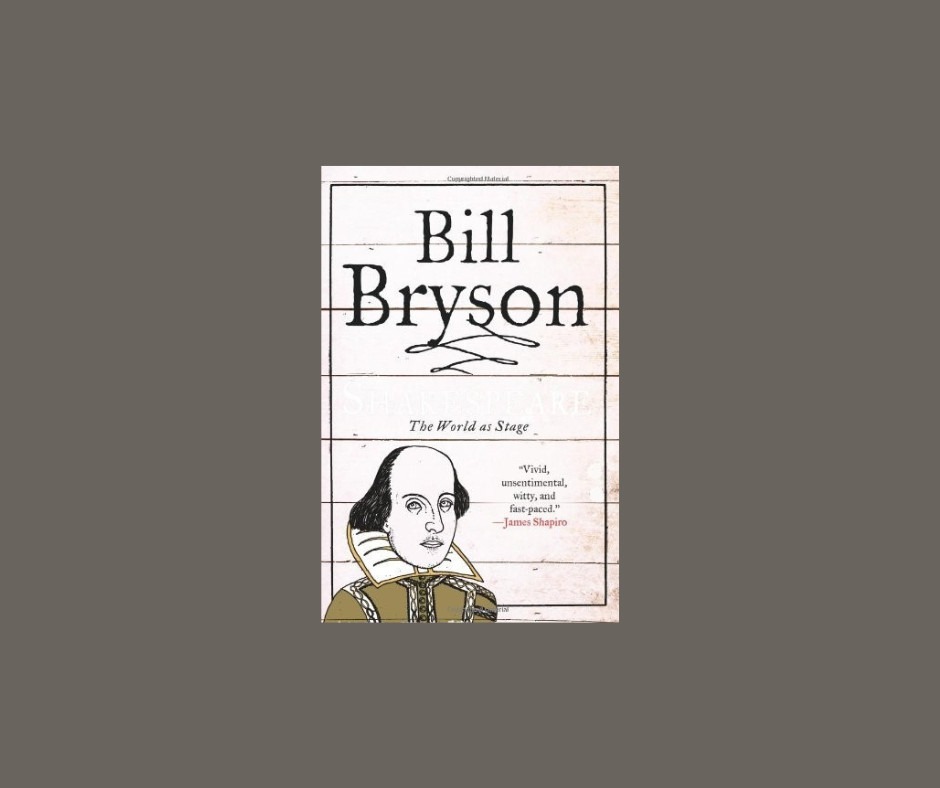‘Shakespeare’: Bill Bryson’s engaging and thought-provoking examination into the Bard of Stratford
“It is because we have so much of Shakespeare’s work that we can appreciate how little we know of him as a person,” Bill Bryson writes in his illuminating and fascinating biography Shakespeare: The World as Stage. The invisibility of Shakespeare, the man, compared to Shakespeare the writer is the focus of the book, which was updated in 2016, due to developments in the field. Bryson successfully undertakes the daunting task of wading through the myths and lies in search of the truth about the man behind the quill. Bryson succeeds in his aim of writing a biography that holds substance while being succinct, which makes the book easily enjoyable by a large readership. He manages to carve a much-needed space for his work in an already overcrowded market of Shakespearean books.
Shakespeare: The World as Stage showcases the bard as a significant, thought-provoking figure, through Bryson’s accessible style. The book celebrates the impact of Shakespeare on culture, by chronologically exploring his life, career, the lost years and his legacy today. Whether it is debating Shakespeare’s sexuality or the authenticity of the Cobbe portrait, Bryson manages to interrogate each point of contention with ease. Despite the mystery surrounding Shakespeare himself, reading Bryson’s biography during the 400th anniversary of Shakespeare’s First Folio only highlights the genius and cultural impact of the bard of English literature.
The research and dedication of Bryson shines through the pages, alongside his admiration of key academics in the field…
Shakespeare does not claim to be literary criticism of Shakespeare the writer, but rather an objective and humorous examination of the historical figure of Shakespeare. This makes it a brilliant biography, as Bryson does not oversaturate his work with examinations of Shakespearean literature. Instead, he masterfully interweaves biographical detail with academic debates, drawing on a plethora of key scholars in Shakespearean research which brings the largely intellectually elitist field of study to life. The research and dedication of Bryson shines through the pages, alongside his admiration of key academics in the field, such as the largely cited Stanley Wells, retired chairman of the Shakespeare Birthplace Trust and leading Shakespearean scholar.
Whilst it would be easy, however, for Bryson’s voice to be drowned out through the multitude of academic voices, his own enthusiasm and intrigue still sit at the forefront of the text. Bryson does not claim to be an expert, but instead an interested fan with a critical eye. By placing himself in a position of inferiority when compared to the academics in the text, Bryson is on even footing with the general readership, bridging the gap between them and Shakespearean scholars. This makes Shakespeare an intellectual and yet accessible text.
Bryson’s light-hearted and witty style adds to this. For instance, when he dismisses theories of an alternative writer behind the name of Shakespeare, he satirically claims that these people would have “managed to uncover the greatest literary fraud in history, without the benefit of anything that could reasonably be called evidence”. This one example of his dry humour and lively prose highlights his ability to craft an intimate relationship with the reader, as they both traverse the vast world of Shakespearean studies.
Immersive and engaging, Shakespeare gently guides readers through key findings and debates within multiple fields of Shakespearean studies…
The interdisciplinary approach to examining the figure of Shakespeare is a stand-out feature in the book. By speaking to experts in literary, historical, artistic and archaeological fields, Bryson gauges a holistic view of the bard, whilst appealing to readers with a variety of interests. His ability to link specific biographical details of Shakespeare’s life to broader historical events allows for a greater picture of Shakespeare’s England and the unique figure of the bard himself. Immersive and engaging, Shakespeare gently guides readers through key findings and debates within multiple fields of Shakespearean studies, not alienating them from the intimidating world of academia, but rather plunging them head-first into engaging debates and questions.
This book is perfect for the general reader and the academic scholar, with its absorbing style making it a perfect leisurely read. Shakespeare is able to be read and reread, and is on great footing to stand the test of time as a unique contribution to the study of Shakespeare.
5/5 stars

Comments